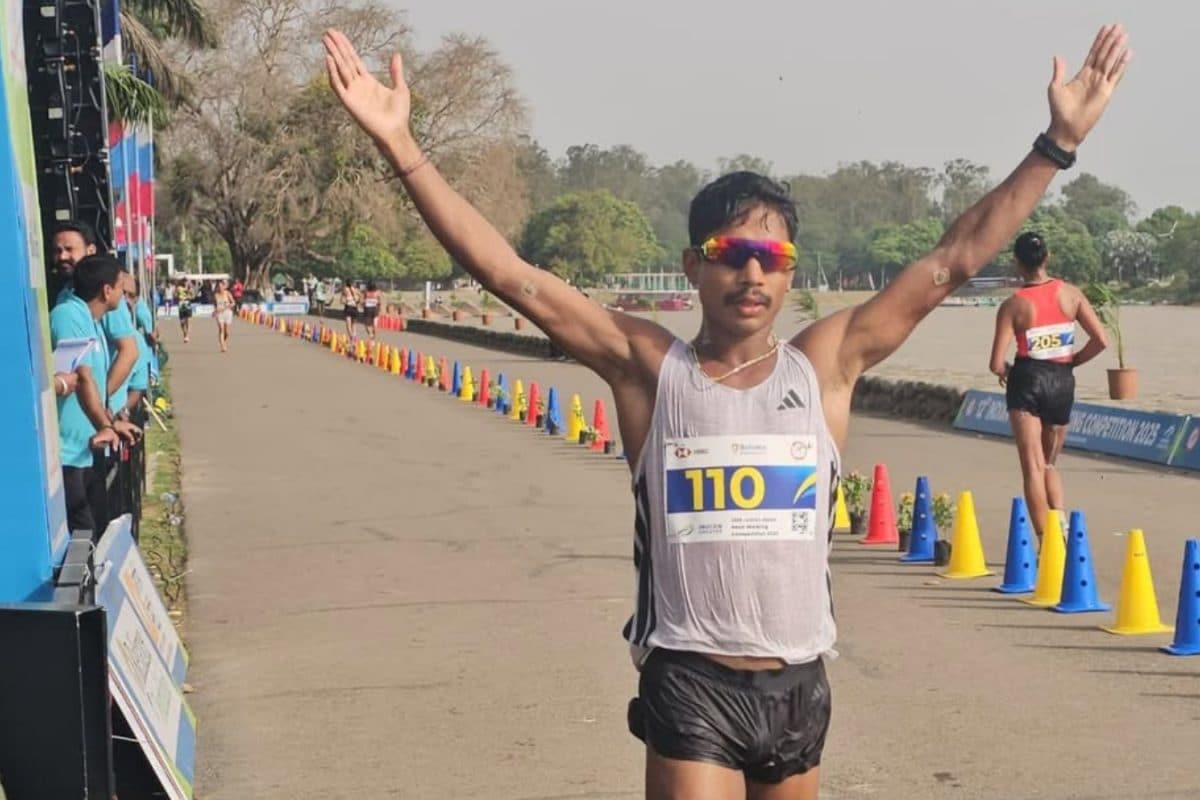Race Walk Blunder: Women's 35km Results Invalid
Sports Other SportsPosted by AI on 2025-04-20 00:14:16 | Last Updated by AI on 2026-02-05 17:57:49
Share: Facebook | Twitter | Whatsapp | Linkedin Visits: 16

Imagine training for months, pushing your physical and mental limits, only to discover your race was a kilometer short. That's the disheartening reality for the female athletes competing in the 35km race walk at the Indian Open Race Walking Competition. When the results sheet was released, a shocking error came to light: the women’s race timings were recorded for 34km, rendering the entire competition invalid for the female participants.
The oversight casts a shadow over what should have been a celebration of athletic achievement. While Ram Baboo secured the gold medal in the men's 35km event, the focus shifted abruptly to the administrative blunder that marred the women's competition. Instead of discussing personal bests and strategic race execution, the conversation now revolves around the logistical failure that robbed these athletes of a fair chance to compete at the intended distance. The error, a seemingly simple miscalculation, has significant consequences for the athletes who dedicated themselves to preparing for a 35km race walk. The difference of a single kilometer, especially in a grueling endurance event like race walking, is substantial. It alters pacing strategies, hydration plans, and ultimately, the final outcome.
This incident raises serious questions about the organizational oversight of the competition. How could such a fundamental aspect of the race, the distance itself, be incorrectly measured and recorded? The integrity of the competition is now under scrutiny, and the athletes deserve a full explanation for the error. The situation highlights the importance of meticulous planning and execution in sporting events. Every detail, from course measurement to timing accuracy, plays a crucial role in ensuring fair competition and valid results. The consequences of overlooking even seemingly minor details can be significant, affecting not only the outcome of the event but also the morale and motivation of the athletes involved.
The Athletics Federation of India will likely face pressure to address this situation transparently and take appropriate measures to prevent similar incidents in the future. The affected athletes deserve recognition for their efforts and a fair opportunity to compete in a properly measured 35km race. The incident serves as a stark reminder that administrative competence is just as crucial as athletic prowess in the world of competitive sports. It remains to be seen how the Athletics Federation of India will respond to this incident and what steps will be taken to rectify the situation for the female athletes. The focus now shifts to accountability and the hope that future events will adhere to the highest standards of organization and accuracy. The athletes, who poured their heart and soul into their training, deserve nothing less.
Search
Categories
Recent News
- Manipur's New Government: A Swift Assembly Session
- Adani's Smart Meter Milestone: Powering India's Digital Energy Revolution
- Sabarimala Heist: Key Suspect Walks Free, Justice Delayed
- Supreme Court Orders West Bengal to Resolve Pending Dearness Allowance Dispute
- Justice Delayed: Elderly Man Finally Acquitted After Decades of Legal Battle
- Bengaluru's Power Outage: A Planned Disruption
- iPhone Users' Wi-Fi Woes: iOS 26.2.1 Update Backfires
- Nellore Rallies for Cancer Awareness on World Cancer Day
Popular News
- Navigating IPO Market Dynamics Amid Volatility and Regulatory Changes
- Massive Worldwide Microsoft Outage Disrupts Multiple Sectors
- Panjapur Bus Stand to Reshape TNSTC Routes
- తెలుగుదేశం పార్టీ - పేదరికాన్ని నిర్మూలించడంలో వాగ్దానం
- Universities Embrace Remote Learning Technologies Amidst Ongoing Pandemic